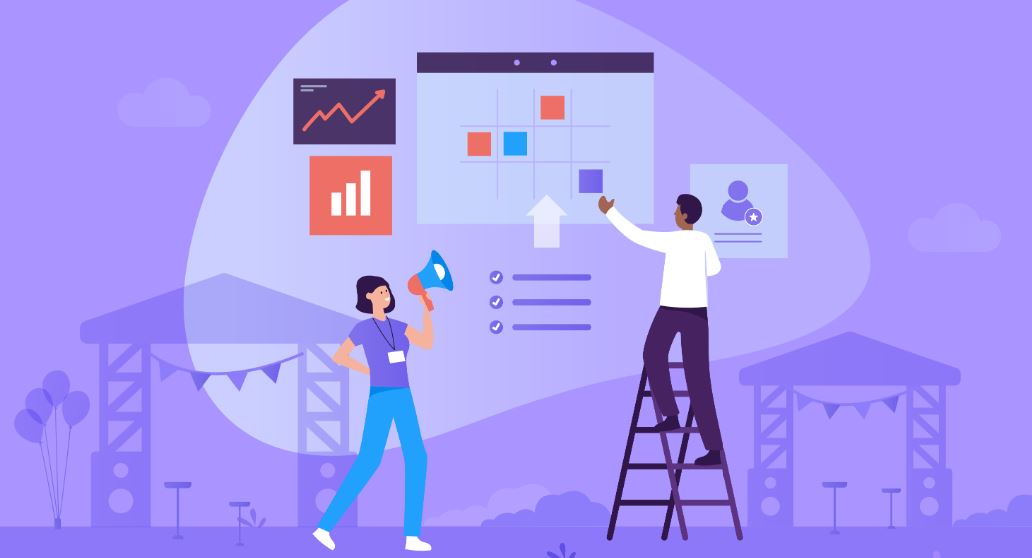You’ve successfully run an event and your attendees are seemingly happy.
However, your job is not yet done, and it’s time to distribute a post-event survey to collect feedback from as many attendees, sponsors, speakers, and stakeholders so you can objectively measure your event’s success.
Different attendees and participants might have different experiences after they’ve attended your event, and this is why it’s important to distribute the surveys to as many participants as possible.
Yet, what should you ask in these post-event surveys? To make sure you are getting the most valuable feedback, here are some of the most effective post-event survey questions that you should be asking.
What is your Level of Satisfaction with this Event?
You can make this a Likert Scale type of question (giving 5 or 7 options ranging from “not satisfied at all” to “very satisfied”. A pretty straightforward question, as you can see, but is also one of the most important questions you should be asking.
It will give you a high-level overview of how the event went in general and whether it has met the expectations of your attendees. You can use this question to start your post-event survey and gradually add more granular questions after.
You can also break down this question to discuss different elements of the event, for example:
- Date and time
- Venue
- Speakers/talents
- Catering
- Vendors
And so on.
Do you plan to attend this event next year? (If it’s an annual event) or do you plan to attend our future events?
A great question to objectively weigh the attendee’s satisfaction level, and you can use this to complement the above’s question.
Also, you’ll be able to gain valuable insights into how many visitors will potentially attend your event next year (and you can use it for securing next year’s sponsorship and speakers). It’s typically easier to encourage repeat attendees than to find new customers.
Which elements of the event did you like the most?
Make this an open-ended question, and will provide you with valuable insights into which elements of the event are worth repeating in future events. You can create a database to rank the different elements of your events from those who get the most votes to the least-voted ones. This can significantly help when planning future events.
What (if any) did you dislike about this event?
Another open-ended question or you can make it a multiple-choice question. If an element of your event is disliked by too many attendees and participants, then you can evaluate and learn from them. A great question to show participants that you care about their opinion and are willing to improve.
How likely are you to recommend a friend to our event?
You can either make this a binary (yes/no) question or use a Likert Scale to measure their level of satisfaction. Another great way to measure your event’s success is to assess whether or not your attendees are going to tell a friend about your event.
You can also follow up positive responses to this question with a link to your referral campaign (if any).
How satisfied were you with the networking opportunities provided?
This question is most effective as a Likert Scale question and is especially important if your event is designed to accommodate networking. Use this question to assess whether you’ve found the right networking solution for your attendees, and you can include a comment box so participants can tell a short story about their networking experience at your event.
Did you have any issues registering for this event?
Use a binary (yes/no) option followed by a comment box for those who answered yes. This is an important question to measure the performance of those in your team responsible for managing registrations, as well as your registration platform or software (if any). If you find repeated patterns in the responses, then it’s a clear indication that you should fix the registration process for future events.
How satisfied were you with the sessions/speakers/talents/exhibitions at the event?
Another Likert Scale question to measure satisfaction. Satisfaction with your sessions/speakers is one of the most important indicators that attendees will come back to your events. Will also help you evaluate which speakers/talents are worth inviting again for future events.
How did you feel about the duration of the session?
A very important question to ask especially for virtual events. Attendees of virtual events, on average, only watch 68% of a virtual session that is longer than 20 minutes. Asking this question will help you assess whether your sessions already have an optimal length to maintain the attendee’s engagement.
How can we improve for the next event? (Or next year)
A to-the-point, open-ended question for constructive feedback. This is a great question both for you and for the respondent since they’ll have the chance to express their feelings and comments, while you’ll have very valuable feedback you can use to improve your future events.
Do you have any other suggestions or feedback?
You can use this question to close the post-event survey so you can keep the list of questions fairly short while ensuring your respondents still have the chance to offer feedback in areas not asked in any of your questions. This question functions both as a reminder for your respondent as a “catch-all” opportunity to collect more valuable feedback from your audience.
How Can Eventtia Help?
Eventtia is an all-in-one event management software with a built-in event survey feature. You can easily distribute both pre-event and post-event surveys then collect, manage, and analyze the answers in a single platform. This is on tops of other useful event management features like registration/ticketing, attendee tracking and management, event team collaboration, task management, and more.
Post-event surveys are very important in hosting any event so we can collect valuable feedback about the actual performance of the event that might otherwise go unnoticed. We can then use the valuable insights to plan and design better events in the future to attract even more attendees.




